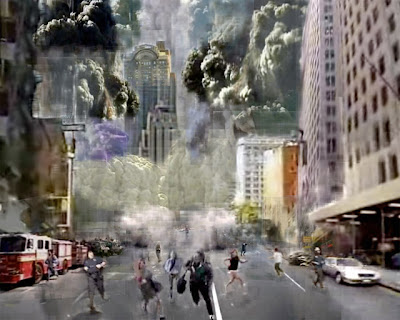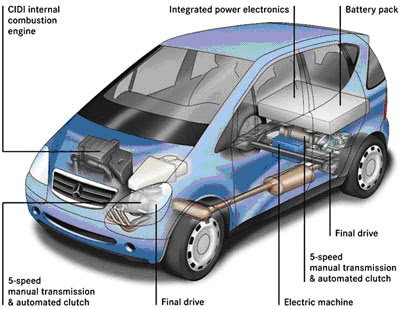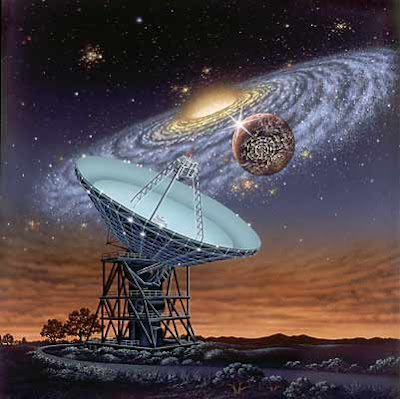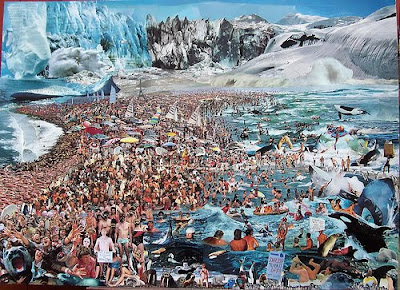
Signature image of the 2000s: our world collapsing at the strike of terrorism
(part of a collage titled "Modern History" by Josh Poehlein)
The first ten years 2000 - 2009: a personal review
The first ten years of the 20th century today are known as the fin de siècle: the end period of an entire era. In 1905 US President Theodore Roosevelt had called the old European world of Kings and Emperors “a bygone civilization”. He was right of course, but it would still take another ten years for this old world to finally collapse and thus for history to ultimately appreciate the significance of those first ten years of the century. The same applies to the ten years that have passed in this new century. What will be their significance? As yet, we can not say.

The other signature image: a world connected by the internet
The Great War of 1914 – 1918 and its aftermath triggered an immense turning point in Western Civilization. It was the birth time of our current modern world of democracy, technology and of the supremacy of popular culture. In its initial phase the outcome was far from certain as new absolutist claims to the human society were made both by the fascist regimes in Western Europe and subsequently by communism in Eastern Europe. Their massive impact was twofold: both – highly – destructive and highly stimulating. The Second World War and the Cold War have greatly accelerated the modernization of our world in the second half of the century in every field: technology, culture, markets, governance.
Largely as a result of ongoing adversity and conflict, both old and new, it has taken the entire century to develop concepts and institutions capable of exercising shared – regional and world wide – responsibilities in the interest of lasting peace and security. This is still an ongoing process, for instance in Europe - with some countries still waiting in the wings to become EU Member State – and at international level: with the UN and NATO remaining subject of ongoing scrutiny in terms of their effectiveness and longer term viability.
Still, setting aside the institutional struggles, globalization is one of the most prominent forces affecting our lives today, not merely in the Western world. And it does so in almost all dimensions: economically, politically, in our popular culture, our social and professional networks, our language and so on. What started in the early 1900s with telephone, radio, gramophone and the automobile has continued by virtue of an unprecedented and unstoppable surge in human inventiveness, creating mass mobility on the road, airlifting the masses in planes, taking people to the Moon, and offering us a means to communicate through mobile phones and the internet in a way that was almost unimaginable even some twenty years ago.

Will the hybride car secure our longer term mobility?
From my own perspective as a Dutchman I would say that being Dutch and being a citizen of The Netherlands is of much less significance in my life than it must have been for the people of my country hundred years ago. In this context, although there is no “end of history”, as has been suggested no too long ago, I would certainly speak of an end of the history of individual nations, in Europe in particular, but also outside. No country is on its own any longer, not even the United States, or Russia. What will count is our world’s history – and our world’s future. We have become much more aware of our existence as one single humanity on a fragile and very lonely Planet Earth and of the challenges we face collectively to keep this planet afloat as a habitable place for the human masses.
We nonetheless continue to wrestle with our sense of identity, the impact of our nationality and national character both in the face of an increasingly global culture but also of increased diversity – and adversity – in our own immediate backyards. Large scale immigration throughout Europe especially from the Arab Muslim world had created manifold tensions, not in the least because of the world wide assertion out of the same world against the very foundations of our Western civilization. It is impossible at this point to predict the ultimate significance of this conflict for our – future – history.

Diversity and - the need for - mutual adjustment
All we can say now, I believe, is that out of all these various challenges – planetary issues, and cultural (and religious) conflicts – will somehow emerge the watershed event that will divide our era from the next.
In the mean time the ebb and flow of our economies, the successive periods of high growth and recession, leave us largely unaffected in the greater scheme of things. The current generations in the Western world have enjoyed an unprecedented long period of peace and prosperity. In our own minds we live in an everlasting world of material comfort and consumer happiness, however much we may have to adjust in certain aspects.

Consumerism depicted as modern day mass slavery
But in our private lives our liberation from ancient social and cultural conventions continues. We have come a long way from the fixtures of a society of families and segmented, regulated networks to our present day much more loosely connected world, in which national or cultural background, social status, past and future are rather fluid and amenable to who we are to whom at any given point in time.

The networks where we meet
We create or joint our own personal contexts, networks and intimate circles largely beyond our traditional social confines or at least we have many more means to do so. The world that we leave to the younger generations will turn out to be quite a different one from the world they will eventually make of it.

















